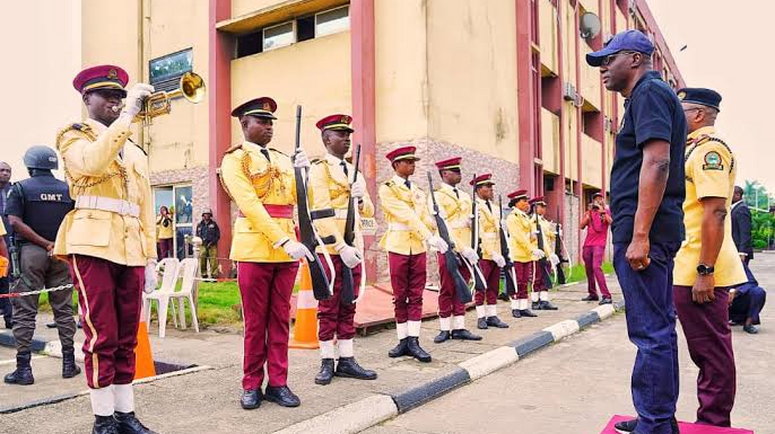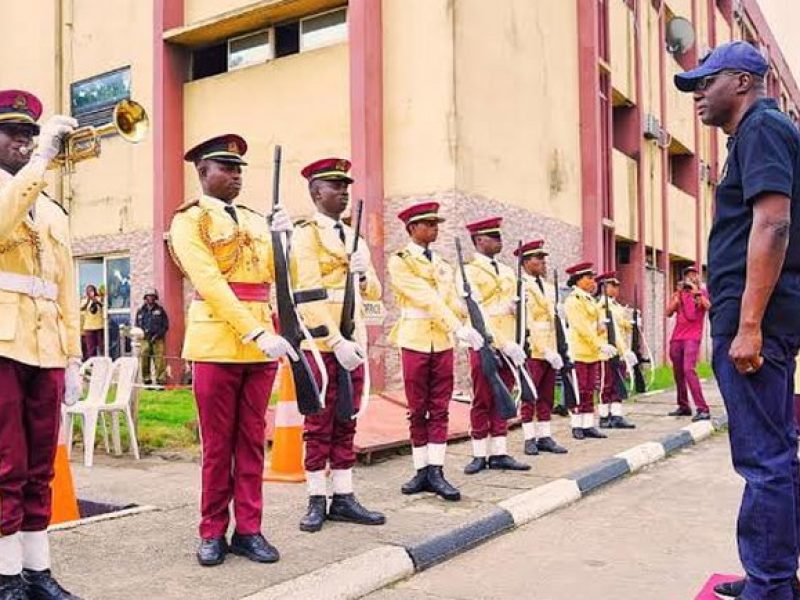Voice of Lagos Feature
LASTMA Orders Psychiatric Evaluation for 18 Drivers Over One-Way Offences: A Necessary Crackdown or a Wake-Up Call?
In a bold move to curb the growing menace of traffic violations in Lagos, the Lagos State Traffic Management Authority (LASTMA) has ordered psychiatric evaluations for 18 motorists apprehended for driving against traffic, a serious offence popularly known as “one-way driving.”
The directive, announced by LASTMA’s General Manager, Mr. Olalekan Bakare-Oki, is part of a renewed effort to enforce discipline and safety across Lagos roads. According to officials, the errant drivers were caught during targeted enforcement operations across different parts of the state and were immediately processed for mental evaluation and legal action.
The Justification: Is It Madness to Drive One-Way?
In Lagos, where the chaotic road culture often competes with the city’s hustle-and-bustle lifestyle, one-way driving has become a dangerous trend—endangering not only the offending drivers but also innocent road users. Mr. Bakare-Oki stated clearly that driving against traffic is not only illegal but deeply irrational, hence the need to determine the mental state of offenders.
“It’s a public safety issue. We need to ask ourselves: what kind of person knowingly drives against traffic, risking lives? We believe that a psychiatric evaluation is a necessary step to protect the rest of society,” he said during a press briefing at LASTMA headquarters.
This isn’t the first time such measures have been proposed. Former Lagos governor Akinwunmi Ambode once suggested similar psychiatric tests for reckless drivers, but this time, the directive is being fully implemented.
What the Law Says
Under Lagos State Traffic Laws, driving against traffic is a serious offence. First-time offenders risk vehicle impoundment, fines, compulsory education, or jail time. Repeat offenders may lose their licenses. The new push for mental health assessments adds another layer of deterrent—possibly signaling that the state is no longer treating reckless driving as just a traffic issue, but a psychological one.
The Lagos State Ministry of Justice has reportedly backed the initiative, promising to fast-track the legal process for offenders and ensure they are not only penalized but also rehabilitated where necessary.
Public Reactions: Mixed but Mostly Supportive
Reactions across social media and within Lagos communities have been largely supportive. Many residents expressed relief that authorities were taking bolder steps to curb the impunity of Lagos drivers.
“This madness has to stop. Every day you see people driving one-way, just to avoid 10 minutes of traffic. I fully support checking if they are mentally stable,” said Kemi Adedoyin, a teacher in Surulere.
Others, however, cautioned against stigmatizing mental illness or using psychiatric tests as a punishment. “We must be careful not to confuse criminality with mental health issues,” a health worker in Ikeja tweeted. “Proper psychiatric evaluation should be a medical tool, not a tool for public humiliation.”
A Message to Lagos Drivers
LASTMA’s latest move sends a loud and clear message: irresponsible driving will no longer be treated lightly. With more surveillance, mobile courts, and community awareness, the government appears determined to restore sanity to the roads.
Mr. Bakare-Oki urged all motorists to obey traffic laws, drive with care, and remember that a moment of recklessness can lead to irreversible tragedy.
“Lagos is growing fast. We can’t afford to let indiscipline grow with it,” he concluded.
Voice of Lagos Opinion
At Voice of Lagos, we commend LASTMA for taking such a proactive stance. In a state where traffic lawlessness too often goes unchecked, this move strikes a balance between enforcement and deterrence. But beyond punishment, we hope this opens up a broader conversation about driver education, urban planning, and public transport reform—because a well-governed road system is everyone’s responsibility.
Let this be a wake-up call. One-way driving is not just illegal—it’s dangerous, selfish, and now, officially, under psychiatric review.
What do you think? Should more states adopt this model? Let us know in the comments below.











